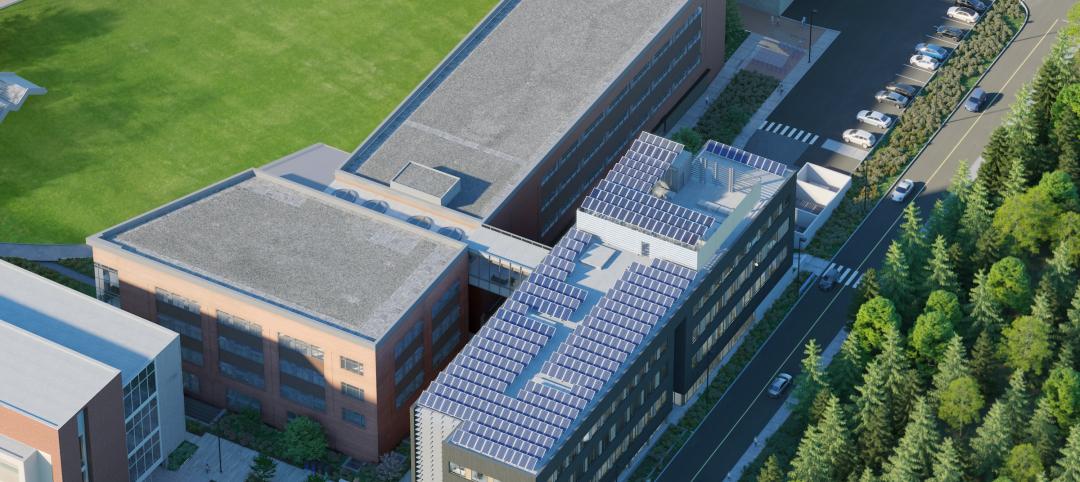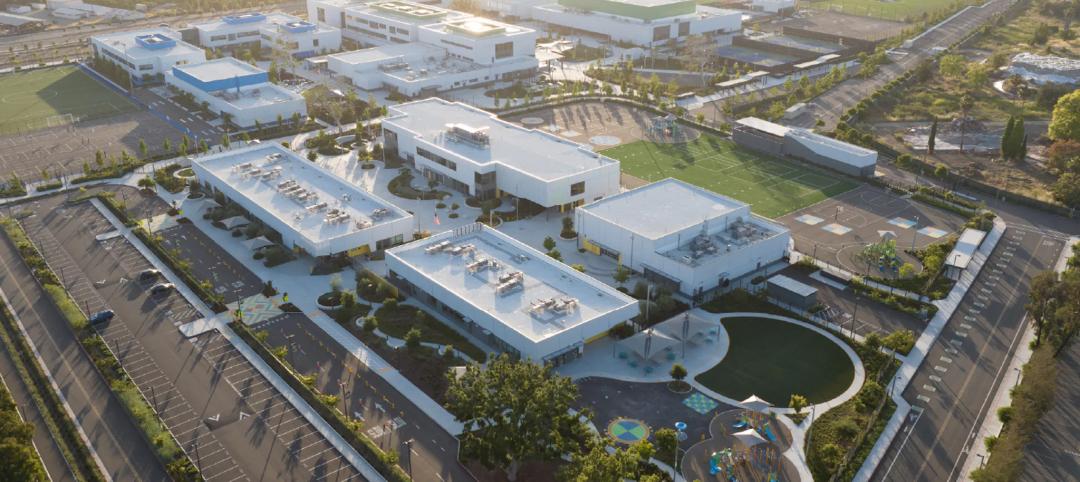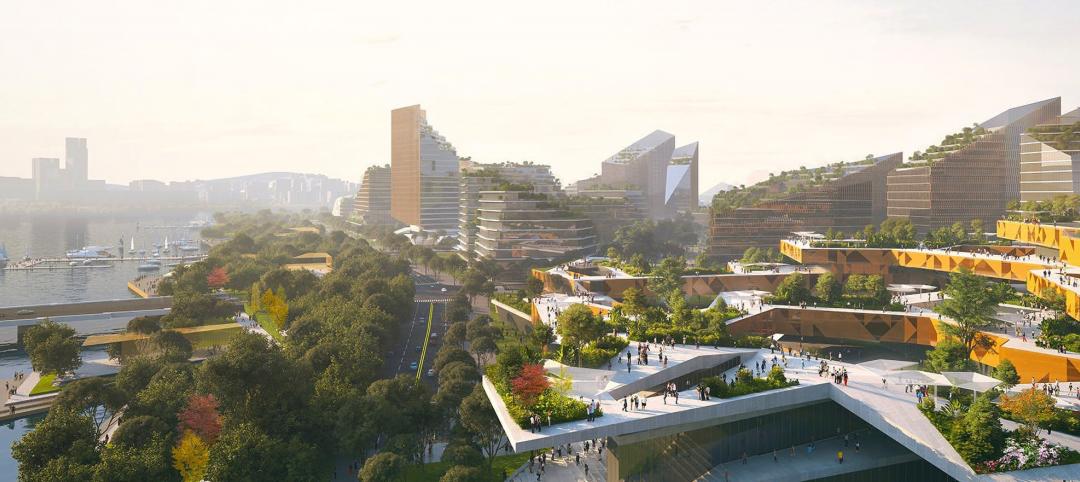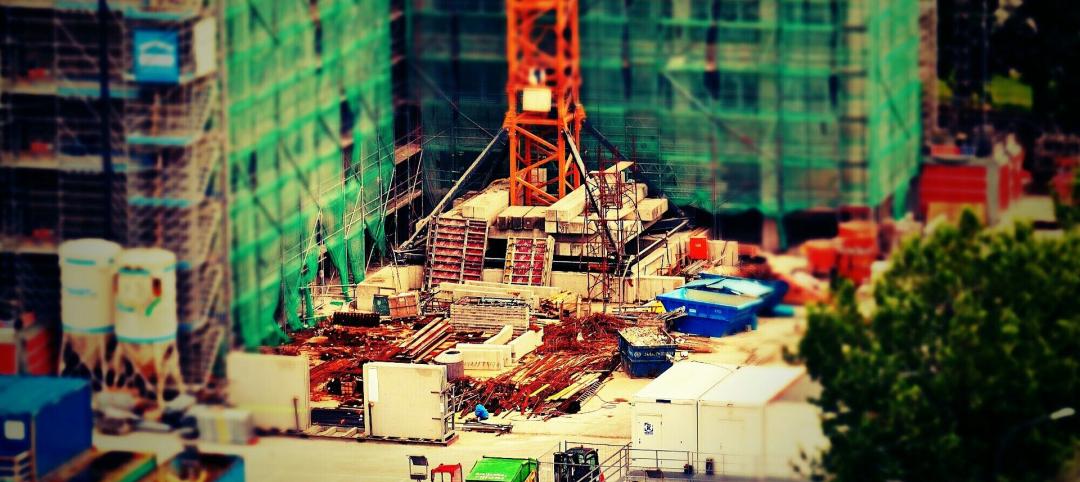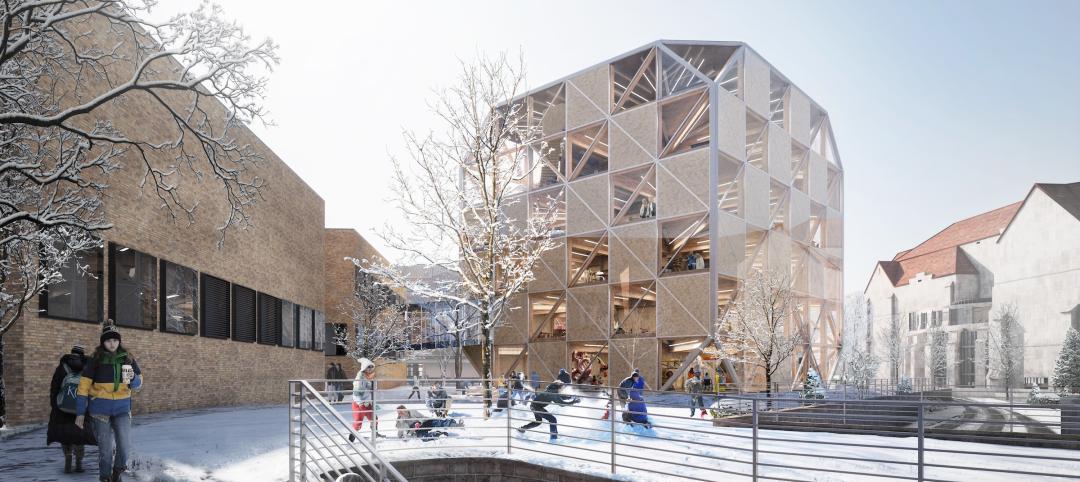In a new brief released on Sept. 29, the U.S. Green Building Council (USGBC) and Green Business Certification Inc. (GBCI) outline an expanded suite of programs and resources focused on improving building and community resilience in the face of climate risks. While governments and businesses focus on economic recovery, more frequent and severe climate events threaten to interrupt progress. Green building helps companies and communities adapt to and mitigate the effects of these growing climate concerns.
“Green buildings are the first step to creating more resilient businesses and communities while also supporting economic development and growth,” said Mahesh Ramanujam, president and CEO of USGBC and GBCI. “We know people, especially those in our most vulnerable communities, are already experiencing the costs of a changing climate and the resilience of the people in these structures is a critical factor. Resilient design, construction and operations verified through green building and infrastructure certifications can help reduce risk and vulnerability. USGBC and GBCI’s resources serve as a roadmap for resilience that has the ability to save companies money and improve the standard of living for all.”
The building and construction industry must accelerate its adoption of strategies and practices that respond to climate threats communities are currently facing. The new brief outlines USGBC and GBCI’s existing resilience resources along with new opportunities and include:
— LEED: The most widely used green building rating system offers a series of resilience design pilot credits that ensure project teams are aware of and are addressing vulnerabilities. The credits are available for new construction and align with the RELi Rating System. Currently, more than 200 projects have registered to pursue the credits. The LEED for Cities and Communities program outlines options to enhance resilience beyond a single building. More than 110 cities and communities have certified.
— Certification Systems: GBCI integrates resilience strategies across several rating systems. RELi takes a holistic approach to resilience and helps developers, companies, city planners and others assess and plan for acute hazards. LEED credits can also count toward RELi certification. PEER serves as a roadmap for designing and operating resilient and reliable power systems and microgrids and has more than 30 certified projects that serve more than seven million people. SITES focuses on creating regenerative landscapes and ecologically resilient communities and has nearly 150 projects participating.
— Data & Technology: Data will define the future of green building, which is why USGBC is working with Coastal Risk Consulting to deliver a RiskFootprint™ for buildings, communities and cities that provides a climate risk analysis. The service will integrate with LEED, Arc and GBCI rating systems to help assess a project’s vulnerability.
— Workforce Education: Equipping professionals with the latest skills and knowledge is critical to scaling resilient practices and Education @USGBC offers courses from experts working on resilience. USGBC will also open a call for ideas on enhancing resilience across the green building industry. GBCI is also developing a new RELi professional credential expected to be ready in 2021.
— Advocacy: USGBC works with federal, state and local governments and jurisdictions to advocate for policies, guidance and incentives that support green buildings and communities. A goal of that work is to ensure disaster recovery funds are spent on high quality, resilient buildings that mitigate climate risks and promote social equity and health. The latest advocacy activities are housed in the USGBC Center for Resilience.
— Partnerships: USGBC will leverage its network of members, partners and LEED users to build a community of leaders for resilient buildings, communities and cities. USGBC will establish partnerships with a variety of organizations committed to advancing resilience.
The resilience offerings are part of USGBC’s reimagined vision and economic recovery strategy, Healthy People in Healthy Places Equals a Healthy Economy. Resilience is a critical component of building a healthier, more sustainable future, but can also influence how companies and governments respond to social and economic disruptions. Resilience planning helps future proofs assets and support communities in times of crisis.
Over the last two years, reportedly more than 16 million people globally, including an estimated 1.2 million Americans, were displaced because of climate events. A number that is expected to continue to grow impacting livability and workability. In a 2019 report from CDP, a group of the world’s largest companies valued climate risks to their businesses at almost $1 trillion – with many likely to occur within the next five years. It reinforces the need for immediate solutions that can help mitigate social and economic costs that are predicted in the near term. Green building programs like LEED, RELi and other GBCI rating systems outline for business leaders and government officials necessary actions and provide a framework for communicating progress.
To learn more about resilience in the building industry, USGBC’s annual Resilience Summit will be held at Greenbuild 2020 on Oct. 1, featuring resilience leaders and the opportunity to learn the newest research and technology around resilience-enhancing designs, technologies, materials and methods. Registration for the Summit and Greenbuild virtual events is open.
Related Stories
Mass Timber | May 31, 2024
Mass timber a big part of Western Washington University’s net-zero ambitions
Western Washington University, in Bellingham, Wash., 90 miles from Seattle, is in the process of expanding its ABET-accredited programs for electrical engineering, computer engineering and science, and energy science. As part of that process, the university is building Kaiser Borsari Hall, the 54,000-sf new home for those academic disciplines that will include teaching labs, research labs, classrooms, collaborative spaces, and administrative offices.
MFPRO+ New Projects | May 29, 2024
Two San Francisco multifamily high rises install onsite water recycling systems
Two high-rise apartment buildings in San Francisco have installed onsite water recycling systems that will reuse a total of 3.9 million gallons of wastewater annually. The recycled water will be used for toilet flushing, cooling towers, and landscape irrigation to significantly reduce water usage in both buildings.
Mass Timber | May 22, 2024
3 mass timber architecture innovations
As mass timber construction evolves from the first decade of projects, we're finding an increasing variety of mass timber solutions. Here are three primary examples.
K-12 Schools | May 13, 2024
S.M.A.R.T. campus combines 3 schools on one site
From the start of the design process for Santa Clara Unified School District’s new preK-12 campus, discussions moved beyond brick-and-mortar to focus on envisioning the future of education in Silicon Valley.
Sustainability | May 10, 2024
Perkins&Will’s first ESG report discloses operational performance data across key metrics
Perkins&Will recently released its first ESG report that discloses the firm’s operational performance data across key metrics and assesses its strengths and opportunities.
Sustainable Development | May 10, 2024
Nature as the city: Why it’s time for a new framework to guide development
NBBJ leaders Jonathan Ward and Margaret Montgomery explore five inspirational ideas they are actively integrating into projects to ensure more healthy, natural cities.
K-12 Schools | May 7, 2024
World's first K-12 school to achieve both LEED for Schools Platinum and WELL Platinum
A new K-12 school in Washington, D.C., is the first school in the world to achieve both LEED for Schools Platinum and WELL Platinum, according to its architect, Perkins Eastman. The John Lewis Elementary School is also the first school in the District of Columbia designed to achieve net-zero energy (NZE).
K-12 Schools | Apr 30, 2024
Fully electric Oregon elementary school aims for resilience with microgrid design
The River Grove Elementary School in Oregon was designed for net-zero carbon and resiliency to seismic events, storms, and wildfire. The roughly 82,000-sf school in a Portland suburb will feature a microgrid—a small-scale power grid that operates independently from the area’s electric grid.
Contractors | Apr 26, 2024
AGC releases decarbonization playbook to help assess, track, reduce GHG emissions
The Associated General Contractors of America released a new, first-of-its-kind, decarbonization playbook designed to help firms assess, track, and reduce greenhouse gas emissions on projects. The AGC Playbook on Decarbonization and Carbon Reporting in the Construction Industry is part of the association’s efforts to make sure construction firms play a leading role in crafting carbon-reduction measures for the industry.
Mass Timber | Apr 25, 2024
Bjarke Ingels Group designs a mass timber cube structure for the University of Kansas
Bjarke Ingels Group (BIG) and executive architect BNIM have unveiled their design for a new mass timber cube structure called the Makers’ KUbe for the University of Kansas School of Architecture & Design. A six-story, 50,000-sf building for learning and collaboration, the light-filled KUbe will house studio and teaching space, 3D-printing and robotic labs, and a ground-level cafe, all organized around a central core.



